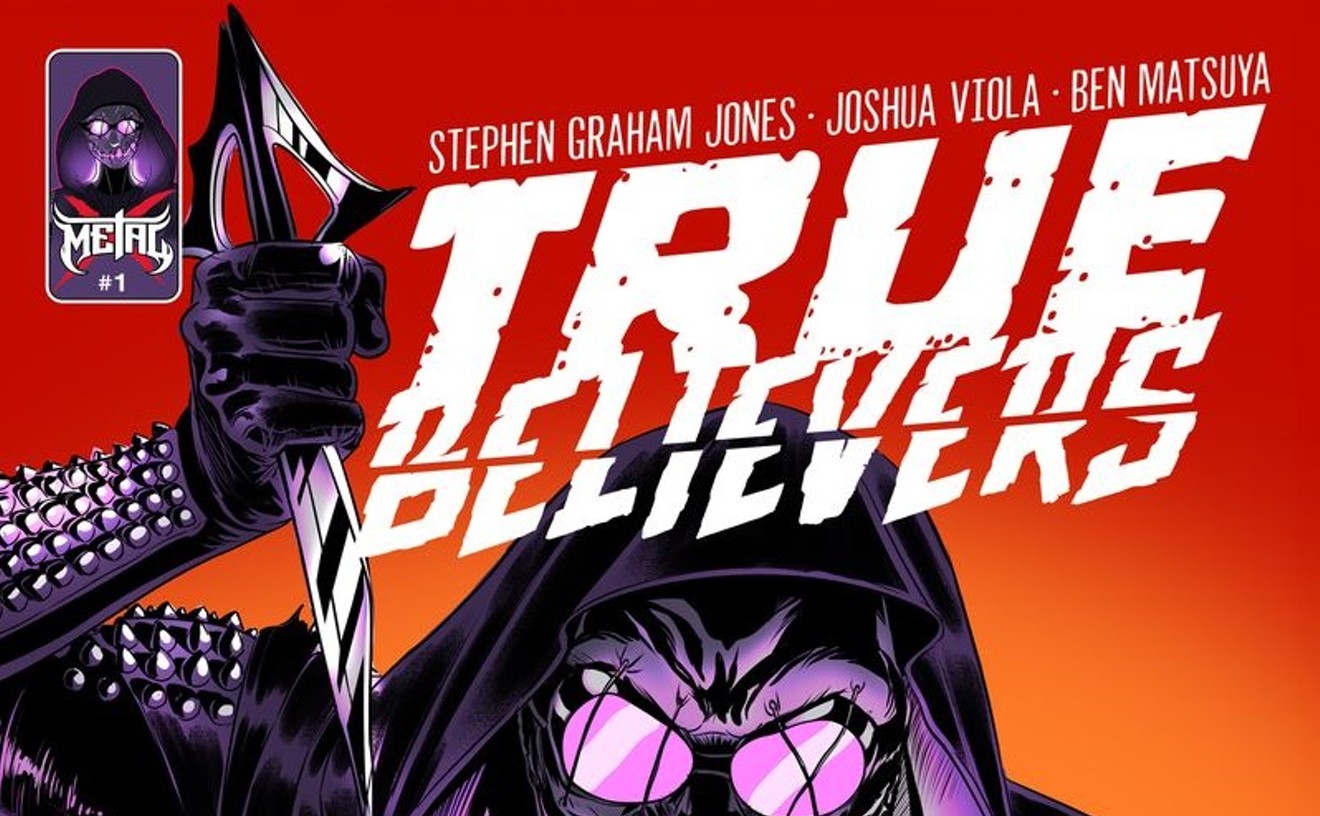One of the most powerful plotlines concerned the relationship between the teenage Buffy and her vampire paramour, Angel. Dangerous and darkly brooding, he hovered outside her window at night, and you were never sure whether he intended good or ill. Greek myth is full of creatures who are half monster, half man, as well as of gods who transform themselves into birds or animals in order to seduce human women. But there was another analogy that kept nagging at the corners of my mind. Where had I read about a woman whose lover came to her only at night and whose face she was forbidden to see, a woman who was never sure whether her beloved was bestial or angelic? From Metamorphoses, at the Avenue Theater, came the answer: the myth of Eros and Psyche.
Mary Zimmerman's play is a sometimes ironic and sometimes respectful take on Ovid's Metamorphoses. The cast assembles around a granite pool -- a miracle of design and engineering put together at the Avenue by Michael Duran, Ben Wofford and producer John Ashton -- that can be anything from a backyard pool to the Greeks' dangerous wine-dark sea, a medium for death, birth, baptism and transformation.
Actors act out the myths or narrate them, sometimes addressing the audience, sometimes each other. The gods they portray are pretty much like the rest of us -- vain or large-spirited, compassionate or cruel.
Metamorphoses contains a couple of studies of greed that the corporate world would do well to consider. King Midas is granted his wish that everything he touches turn to gold. Unfortunately, his young daughter leaps into his arms and immediately stiffens into metal. He can revive her only by finding a redemptive, secluded pool and dipping his hands in it.
Erysichthon cuts down a grove of trees sacred to the goddess of summer. In revenge, she afflicts him with a hunger so deep and primal that it consumes everything in his world, including himself -- a potent image of the insatiability of greed.
The play features two touching stories of love that can be preserved only through metamorphosis. Alcyone and Ceyx are so in love that they are never apart until Ceyx undertakes a sea journey and is drowned. As Alcyone races toward his body, which has come to shore, she transforms into a sea-gull. Ceyx, similarly transformed, joins her. In the second such story, a poor, elderly couple, Baucis and Philemon, are visited by a disguised Zeus, who has already been turned away from several houses. They invite him into their cottage to eat. (The visiting deity, spurned and unrecognized, is a mythic staple.) Granted a favor in return for their hospitality, the couple asks only to die at the same moment. When they do, they become a pair of intertwining trees.
Where love is the theme, death must follow, and Metamorphoses explores two versions of the story of Orpheus and Eurydice -- Ovid's, and Rainer Maria Rilke's poem, "Orpheus. Eurydice. Hermes." This is, without question, the most potent part of the play. Eurydice has died on their wedding day, and Orpheus goes to the underworld and wins permission to bring her back. There is only one proviso: During the journey from Hades, he must at no point turn back to look at her. Unable to refrain from this, Orpheus loses Eurydice for a second time. In Rilke's version, during the long journey from darkness to light, death works on Eurydice like a child in the womb: "...her being-dead/Filled her with abundance/As a fruit with sweetness and darkness/So she was full with her vast death/That was so new, she comprehended nothing." When she is told that Orpheus has turned his head, she can respond only, "Who?"
The dead can never return, and even our memory of them fragments and fades.
In the play's funniest scene, Phaeton, the son of the sun god, Helios, lolls on a rubber raft and explains his many problems to a poolside shrink. Perhaps this is another metamorphosis: the gold of Greek myth into the dross of contemporary psychobabble. Perhaps Zimmerman is saying that Freudianism is itself a set of myths. Or perhaps she is underlining the immortality of myth, the fact that myths change their form but never their essence.
Zimmerman may deserve all the praise she's earned for Metamorphoses, but one thing troubles me: The most powerful scenes rely on the words of others. Zimmerman is responsible for theatricalizing the stories, and for the brilliance of the central metaphor, but without Ovid's description of Ceyx's last thoughts or Rilke's astonishing poem, much of the play's impact would be lost.
Director Jeremy Cole has done well by Metamorphoses, assembling an excellent group of actors. Trina O'Neil has a rich, expressive voice and speaks the poetry with beautiful lucidity. Bill Hahn works with conviction, and his gaunt and sculpted face and physique add a haunting note. David Blumenstock is clear and convincing in all of his roles, and John Arp adds depth and strength to the production. Stephen Pearce brings a lot of humor and vitality, and his willingness to appear naked as Eros adds resonance and universality; any kind of loincloth or covering would have seemed prissy and reductive. Elgin Kelley is moving as Alcyone and Eurydice. It's fun to watch Courtney Hayes, but she could be a bit more thoughtful in some of her roles. Susie Scott is a teasing, funny presence as the wood nymph, Pomona.
Metamorphoses is a seductive combination of lighthearted pleasure and resonant, powerful theme.











